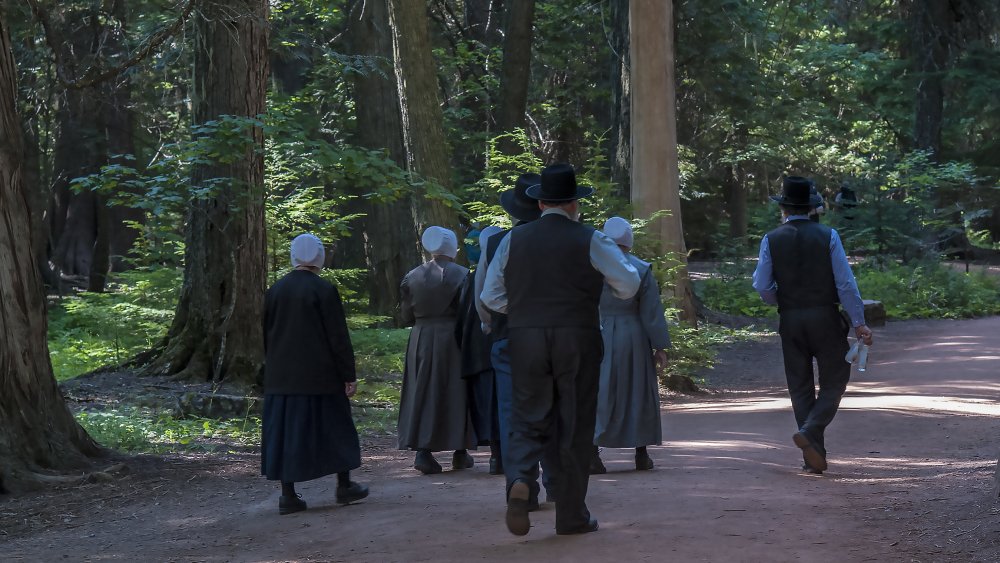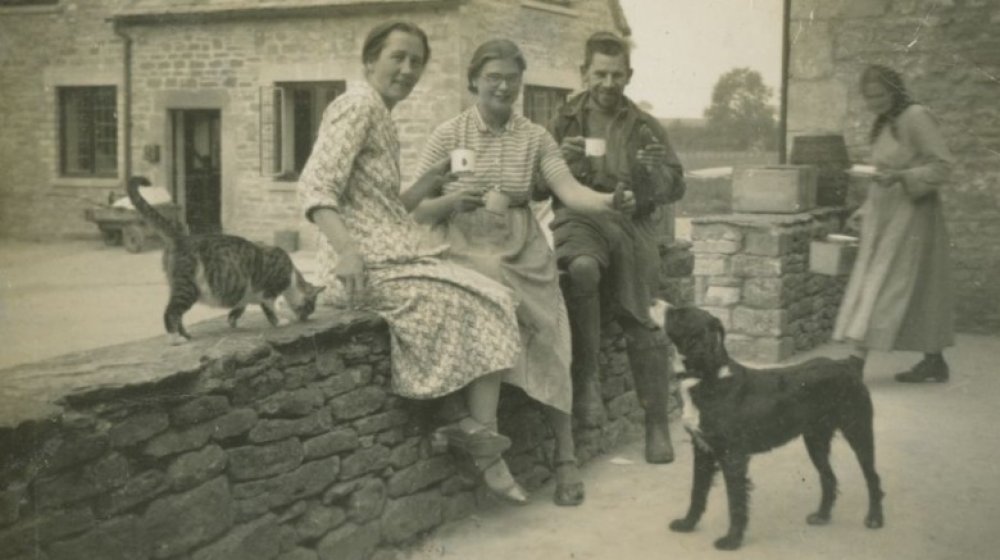The Untold Truth Of Bruderhof Communities
We may receive a commission on purchases made from links.
According to the BBC, there actually exists a place where "there's no crime, debt or homelessness." Hard to believe, yes, but the members of Bruderhof Communities have actively practiced pacifism and social support for a century. The community in Sussex, England, at the center of the BBC piece, "has lived outside of mainstream society ... with its consumerist concerns, high crime and deprivation rate" for nearly 50 years. "Everyone has a job, but no one earns a salary, and none of the children watch television, use social media, play video games or even have a mobile phone."
The Bruderhof (German for "place of brothers") is a pacifist, socialist Christian movement that began in Germany in 1920. Its founder, Eberhard Arnold, was inspired by a cultural and educational campaign started in 1896 called the German Youth Movement. This collective of groups focusing on outdoor activities was distinct from the notorious Hitler Youth, which outlawed and conscripted other youth organizations in Germany in 1939, according to Britannica. Still, as The Independent writes, many youth from these groups actively opposed Hitler.
As Ian M. Randall documents in his 2018 book A Christian Peace Experiment, the Bruderhof also resisted Hitler's regime, and by 1938, all of its members had relocated to England, either forcibly or by will, after the secret police routed their community in Germany's Rhön Mountains.
In search of a place to live in peace
Even before war broke in 1939, the residents of Cotswold, England, where the Bruderhof Community had established a farm, began to grow suspicious of the group's German members. There were boycotts against the produce grown there. Having reported on the group as early as 1937, The Spectator documented how in 1940, the Germans in the Bruderhof faced detainment for the duration of the war and the Englishmen were up for conscription. Again choosing pacifism, the group decided it need to hit the road again.
The only country that would allow a group of pacifists comprised of mixed nationalities to establish a community was Paraguay, to which the Bruderhof relocated in 1941. From there, the ideology spread and communities were established in the United States and Australia. It even returned to Europe, where there are now communities in the United Kingdom, Germany, and Austria.
As with the groups of youth who dropped out of school to evade the Hitler Youth — and others who used their unique talents to fight back against Hitler – the ardent pacifists held true to their morals, and, reports the organization's website, there are still 23 pacifist Bruderhof Communities worldwide today.

